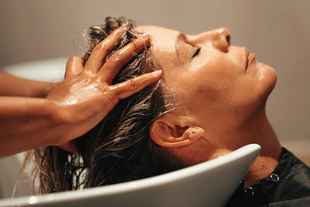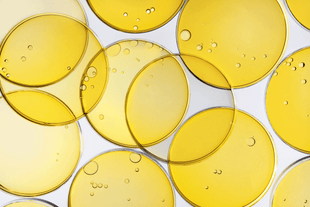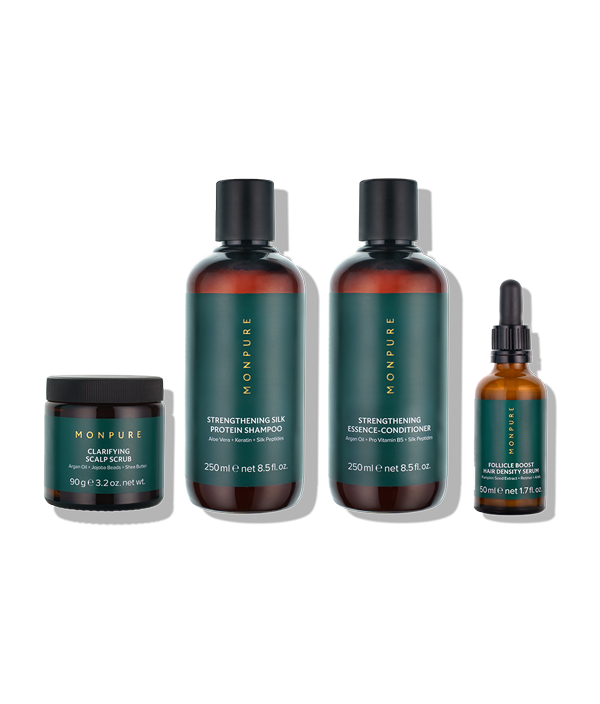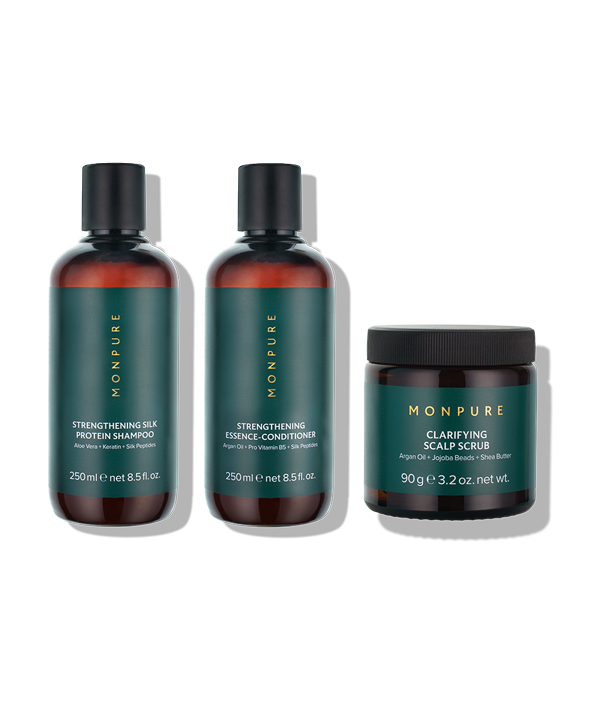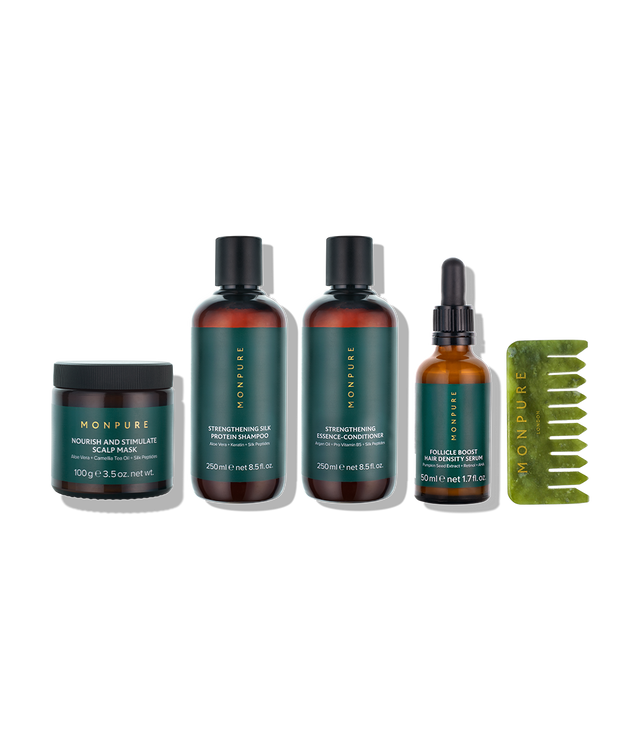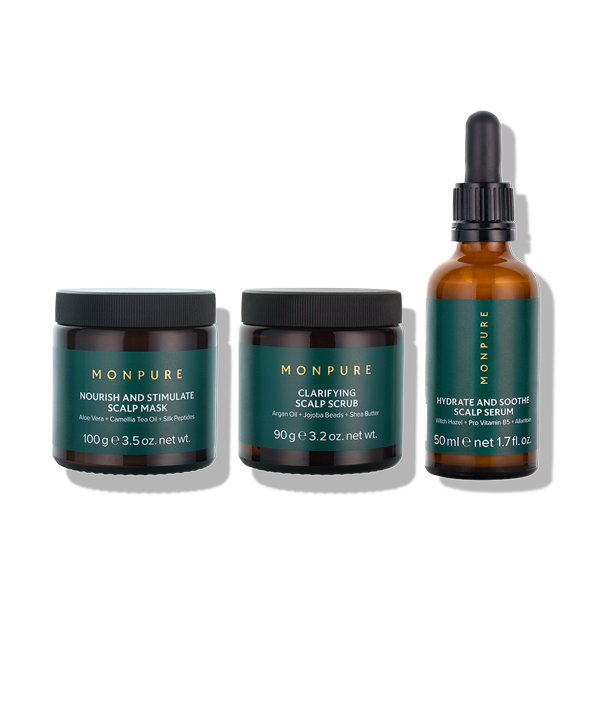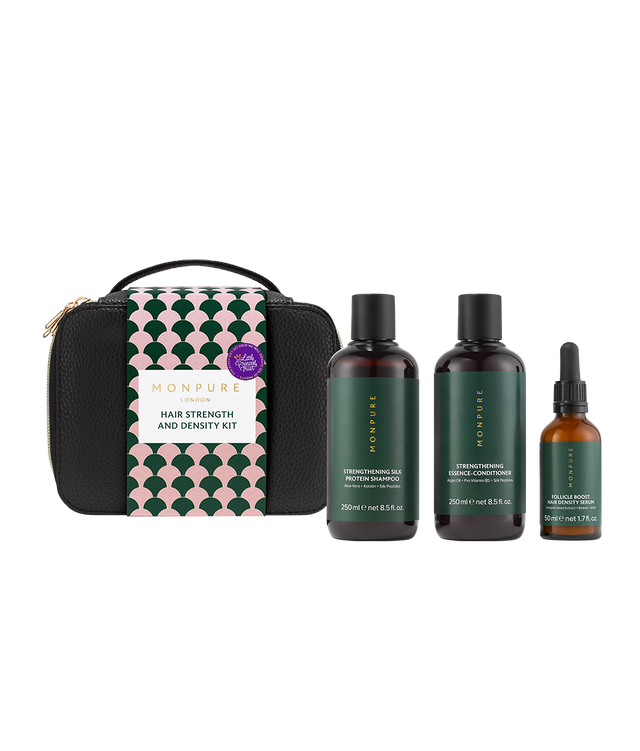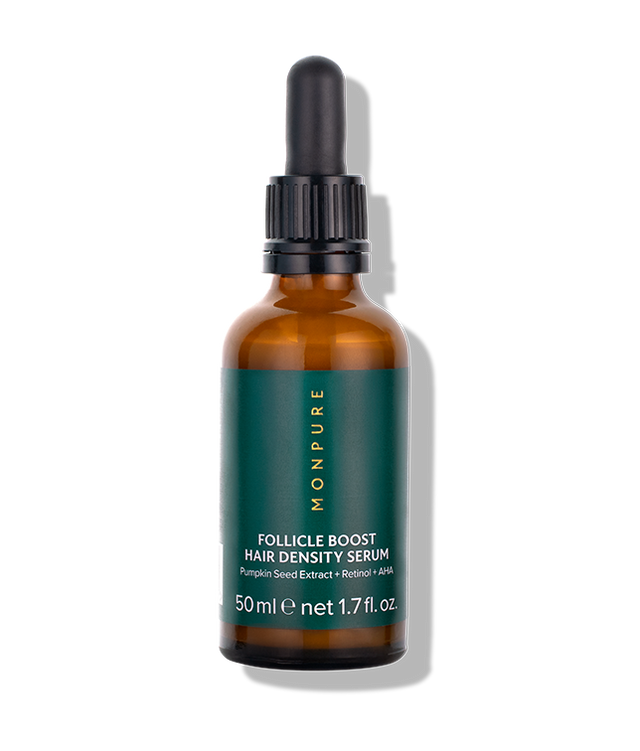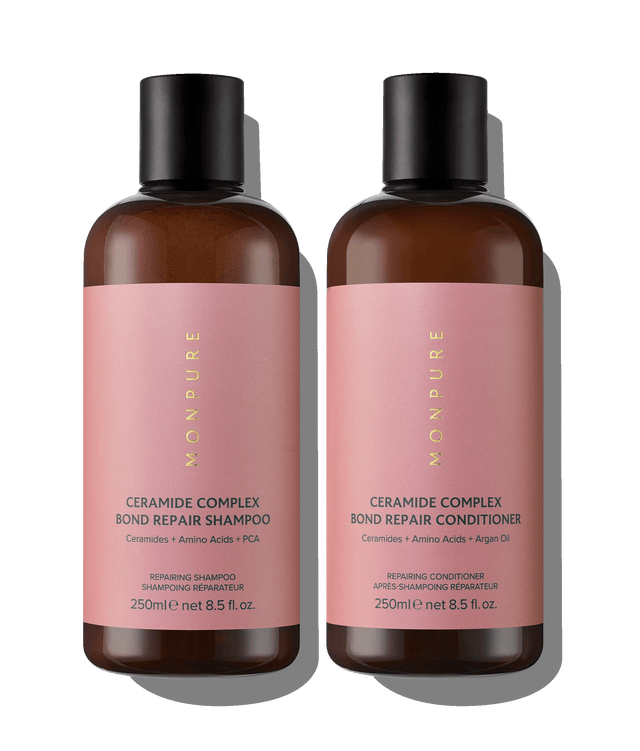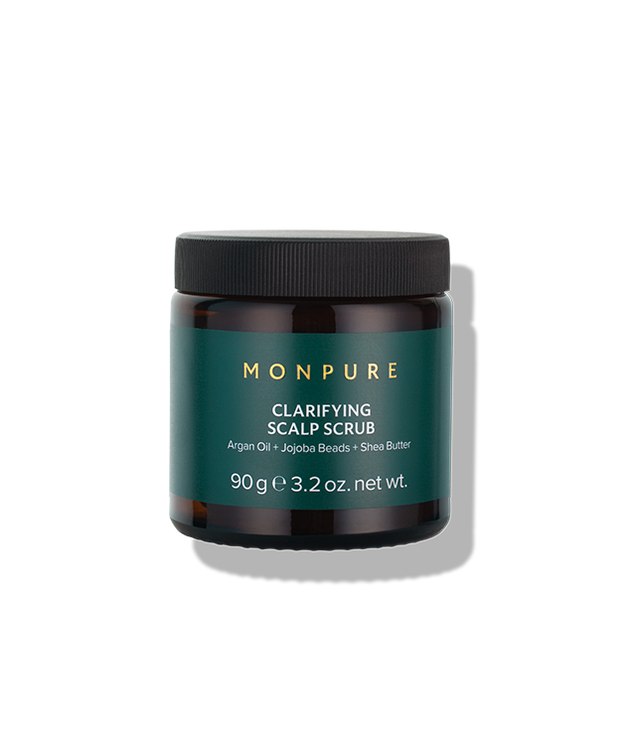Menopause is a natural biological process that all women experience at some point in their adulthood. According to MONPURE’s resident general practitioner, Dr. Simmy Kaur, menopause refers to the lack of a period for a course of 12 months, that usually occurs around the age of 51. The scientific community considers going through menopause before the age of 45 as ‘early menopause’.
Menopause is a time of extreme hormonal fluctuations in a woman’s life. According to the Forth With Life, there are over 34 different symptoms of menopause and perimenopause, but you may not experience them all. While we are all familiar with hot flushes, mood changes and even hair thinning are symptoms that can manifest during menopause. Many people do not realise the effect that menopause can have on the health of the scalp too.
The scalp is among the many things that hormones can alter during both the perimenopausal and postmenopausal period. The hormones involved, primarily oestrogen and progesterone, affect the hair growth cycle, the scalp and follicle health, the collagen production, and the natural oils that keep hair and scalp microbiome healthy and balanced.
Hormonal Changes During Menopause
During menopause, the body undergoes numerous physical changes in response to fluctuating hormones:
- As women age, the reproductive cycle begins to slow down and prepares to stop. This cycle has been continuously functioning since puberty.
- As menopause nears, the ovaries gradually produce fewer follicles.
- The ovaries are the reproductive glands that store and release ovarian follicles. They also produce the hormones oestrogen and progesterone.
- As a result, a decrease in oestrogen and progesterone levels also leads to an imbalanced ratio of a group of male hormones called androgens in the body. Specifically, women during menopause can experience increased sensitivity to an androgen hormone called dihydrotestosterone (DHT), a byproduct of testosterone.
How Oestrogen Decline Impacts Scalp Health
Oestrogen deficiency during menopause can alter certain skin functions. During early perimenopause, many women notice skin dryness, however, this is initially somewhat compensated by the excess sebum production that occurs alongside it.
Declines in oestrogen and progesterone can lead to impaired skin barrier (the outermost layer) function that causes scalp dryness and diminished skin moisture. It also leads to decreased antioxidant function and impaired wound healing on the scalp. The skin’s barrier forms tiny cracks when it’s dry, which allows irritants to penetrate the scalp and cause inflammation. Thinning hair also means your scalp is more exposed to environmental aggressors, such as UV rays and harsh ingredients.
The drop in oestrogen during menopause also causes a decline in collagen production. Research has shown that oestrogen supports collagen production by binding to receptors in the skin known as fibroblasts. Fibroblasts are responsible for producing collagen, the protein which gives skin its strength and flexibility - and elastin, the protein which allows stretched skin to return to its original shape.
As well as functioning as the main structural component of our skin, collagen is also essential to maintain healthy blood vessels which supports the transportation of essential nutrients to the scalp and hair follicles.
Overall, the scalp-skin becomes thinner, dehydrated and prone to inflammation, weakening the skin’s natural protective barriers. This can provide the perfect environment for the overproduction of the dandruff-producing yeast called Malassezia on the scalp. As a result, many women undergoing menopause will experience increased scalp irritation, dryness, eczema and dandruff.
How Androgens Affects Scalp Health
Increased androgen sensitivity also plays a role in compromised scalp health during menopause. Androgens play a role in modulating sebum production. Therefore, the relative increase of androgens during menopause leads to clinical hyperandrogegism (high levels of androgens) manifesting as sebaceous gland hypertrophy, otherwise known as the enlargement of the sebaceous gland an excess sebum production on the scalp. Later in menopause, when sebum production is markedly reduced, the skin becomes increasingly dry and itchy.
Dryer skin, a compromised skin-barrier on the scalp and a reduction in moisture retention can lead to flaking, itching and irritation on the scalp, all of which can also exacerbate the hair thinning that is symptomatic of menopause.
Minimising Scalp Changes During Menopause
Studies have shown that only 25% of women who experience menopausal symptoms consult a physician, highlighting the necessity to improve awareness concerning the management and education around menopausal symptoms.
Lifestyle changes such as diet and stress management, as well as routine revamps, such as exfoliation, scalp serums and swapping out harsh ingredients, can all help minimise changes in scalp and hair health during this period of marked fluctuation.
Shampoo Regularly
Your scalp is skin - a living tissue. It needs to be cleansed and nourished frequently to remain in balance. Like the skin on your face, your scalp contains thousands of sweat glands, sebaceous glands and sheds dead skin cells. It is also exposed to the same environmental aggressors as the skin on your face, such as UV rays and pollution.
Shampooing regularly with a sulphate-free shampoo, such as MONPURE’s Strengthening Silk Protein Shampoo, ensures the scalp is rid of the product, pollution and sebum build-up that occurs between washes, while also being strengthened without fear of damage or imbalance. It works to restore moisture to the scalp and protect the vulnerable scalp-skin from environmental aggressors.
Perk Up the Scalp Environment
Using a soothing, antimicrobial and hydrating scalp serum will work to improve the scalp health environment in the face of hormonal fluctuations.
The Hydrate and Soothe Scalp Serum quenches dry, irritated scalps and soothes redness caused by menopausal hormonal changes. This daily hydrating antidote helps calm symptoms of redness, acne, eczema and sun damage. Witch hazel water has an anti-dandruff effect, while allantoin neutralises irritants. Exfoliating salicylic acid wards off bacterial infection by deeply penetrating the follicles, while orange peel oil holds both anti-fungal and antibacterial properties that maintain a healthy scalp environment.
The Nourish and Stimulate Scalp Mask is a powerful, antioxidant-rich weekly remedy that helps quell the symptoms of impeded menopausal scalp health. It feeds hair follicles essential vitamins and nutrients, holds hydrating and anti-inflammatory properties that lock moisture into dry scalps, and cultivates an optimal dermatological scalp condition.
Embrace Exfoliation
Just like the skin on our face, the scalp benefits from weekly exfoliation. The Clarifying Scalp Scrub uses biodegradable jojoba beads to gently exfoliate flakes, build-up and oils from the scalp to support scalp health. It alleviates symptoms of dandruff and psoriasis, rebalances the scalp microbiome and moisturises the scalp-skin with healing shea butter and argan oil. It also encourages healthy skin cell turnover and primes the scalp for healthy hair growth.
Kickstart Collagen
The Follicle Boost Hair Density Serum is formulated with holy grail anti-ageing ingredient, retinol. Retinoids are derivatives of Vitamin A, which help give cellular turnover a boost, kickstart collagen production and prevent its degradation in the face of menopausal changes. Specifically, retinol stimulates fibroblasts to synthesise collagen fibres and improves skin elasticity. Using this daily serum will work to deliver anti-ageing benefits to the scalp, while also promoting thicker, fuller hair.
Decode Your Diet
Adding phytoestrogens (plant-based oestrogens) to your diet from certain foods including nuts, seeds, beans and fruit can help replace some of the oestrogen lost during menopause. Avocados are also recommended for plant-based healthy fats, as healthy fats and omega 3 fatty acids work to support skin health, skin quality and moisturization of the skin.
Ensuring you have a wide variety of foods and optimal nutrition intake supports the foundations of skin health and collagen, as well as blood flow and nutrient delivery to the scalp and follicles, optimising their health.
Many women will face changes in their scalp condition as they undergo menopause, which may also further contribute to their experience of menopausal hair thinning. Alongside implementing healthy lifestyle changes that cultivate well-being from the inside out, the MONPURE range offers scientifically-grounded solutions that target scalp health at the source. By focusing on the scalp, maintaining a healthy skin-barrier and delivering anti-ageing ingredients, women undergoing menopause can be confident that they are doing everything they can to improve the health of their scalp, even under fluctuating conditions.






